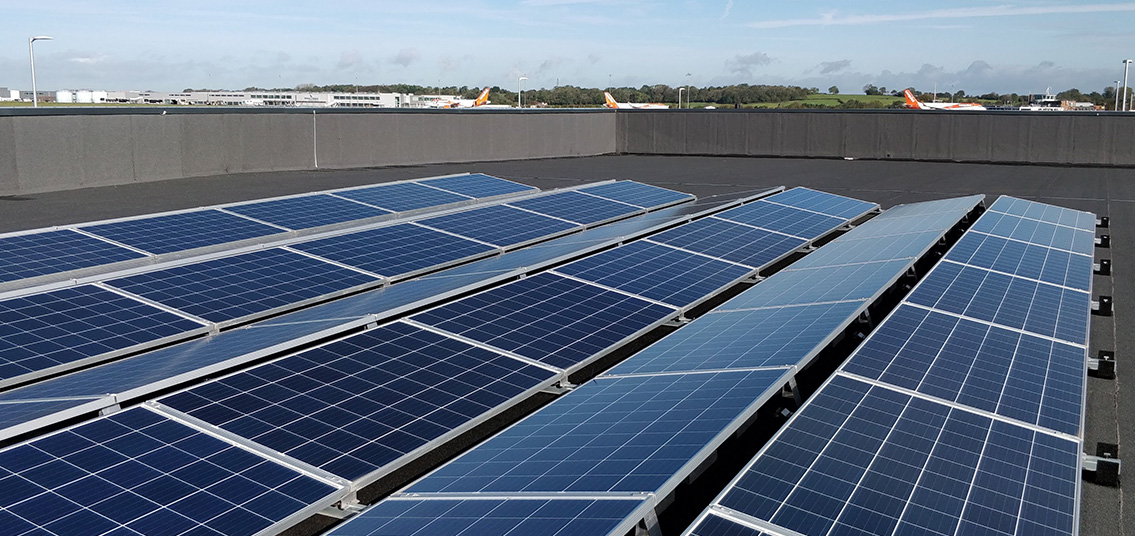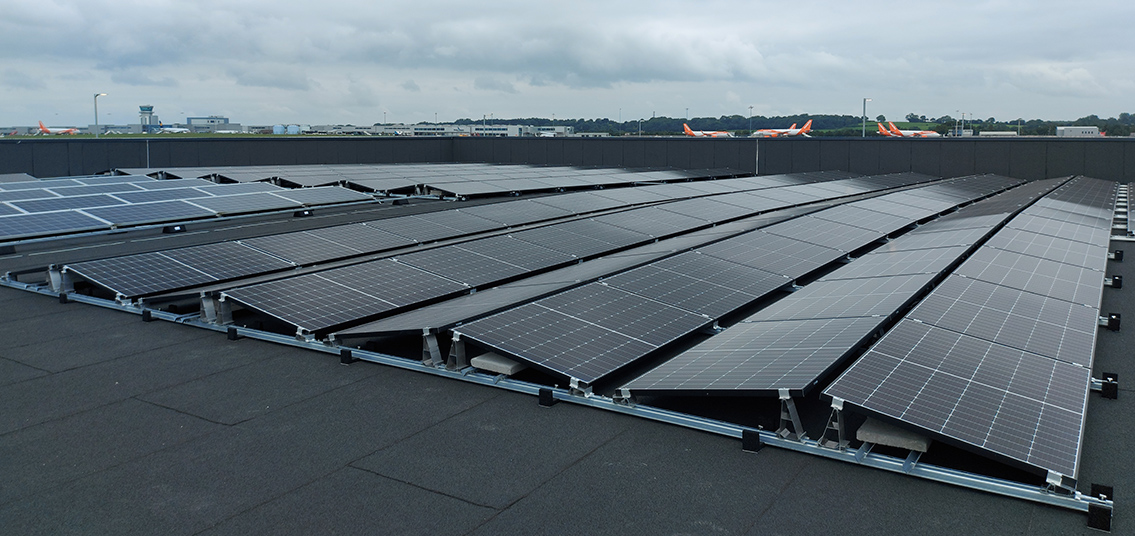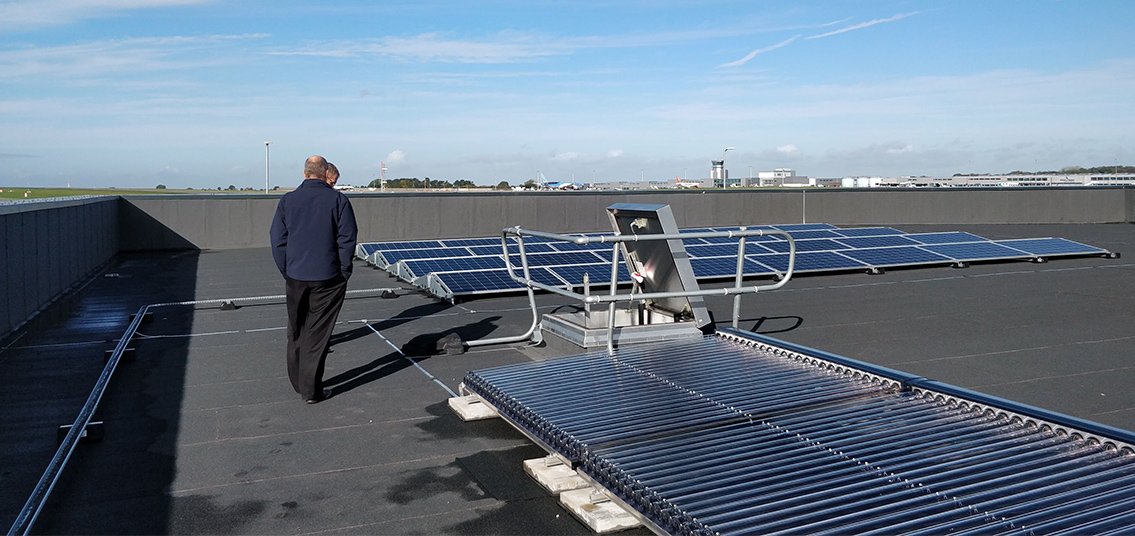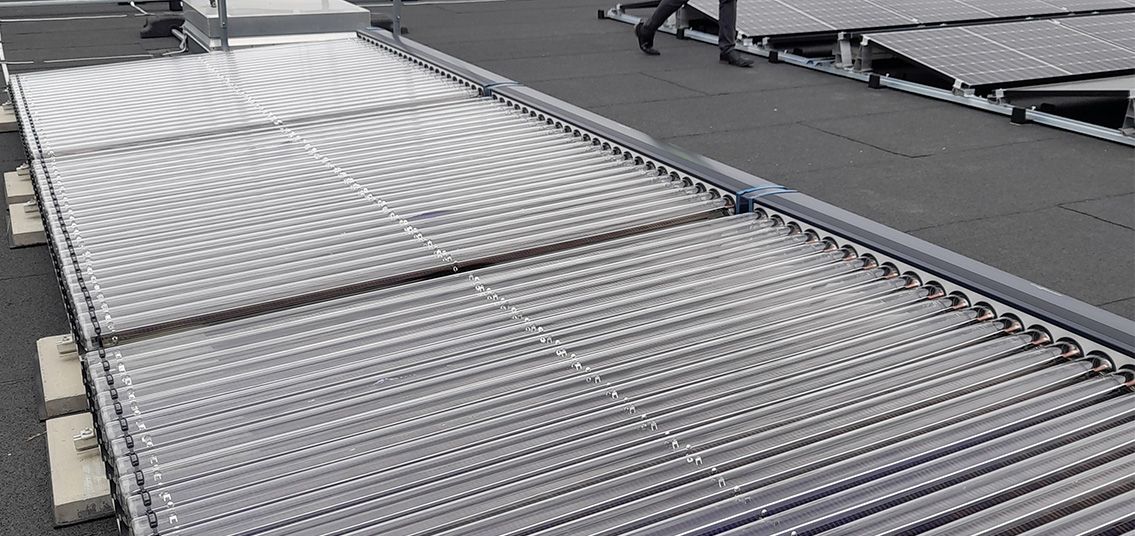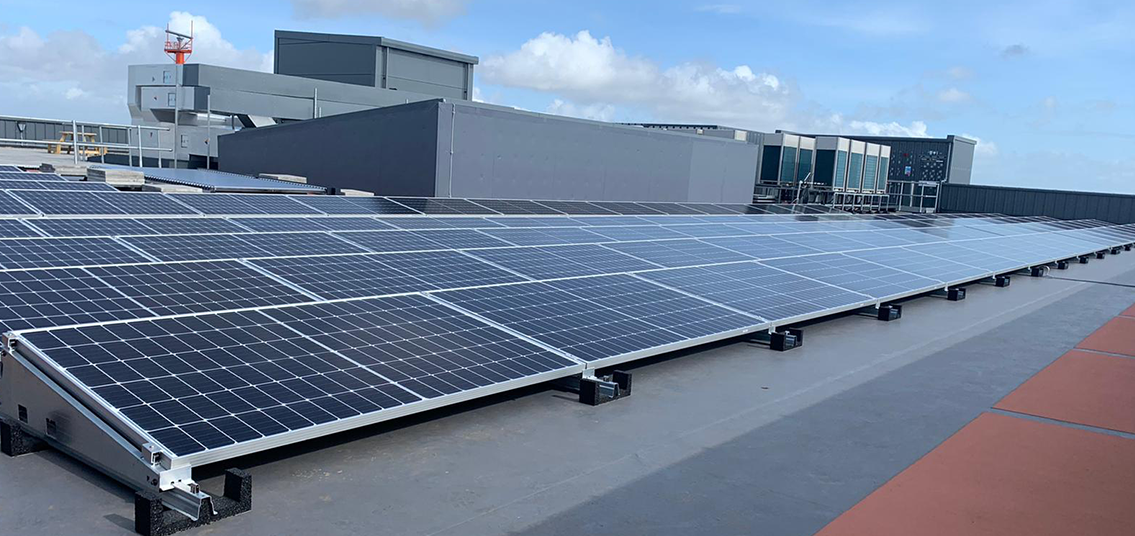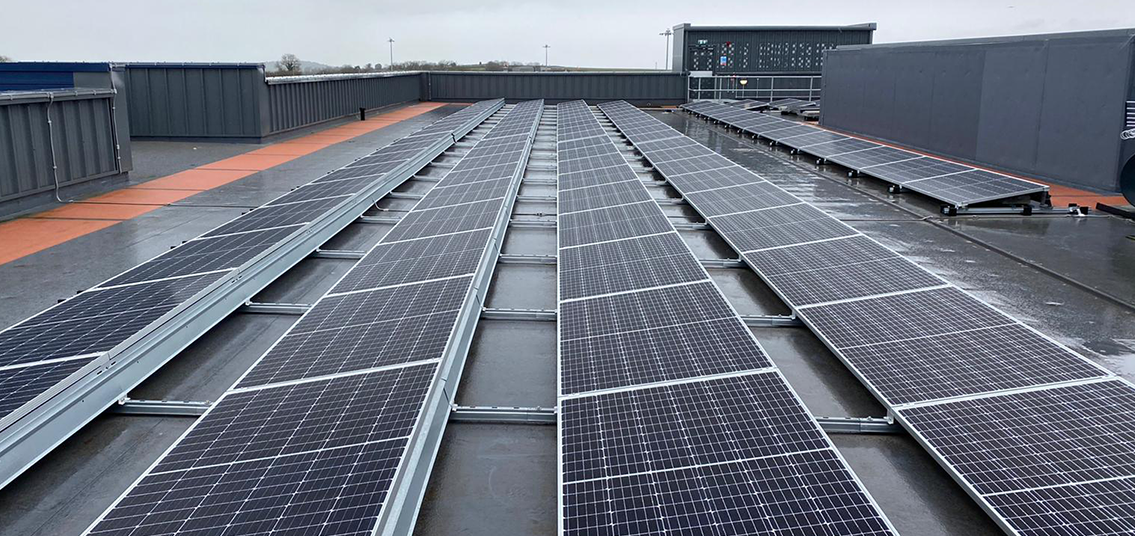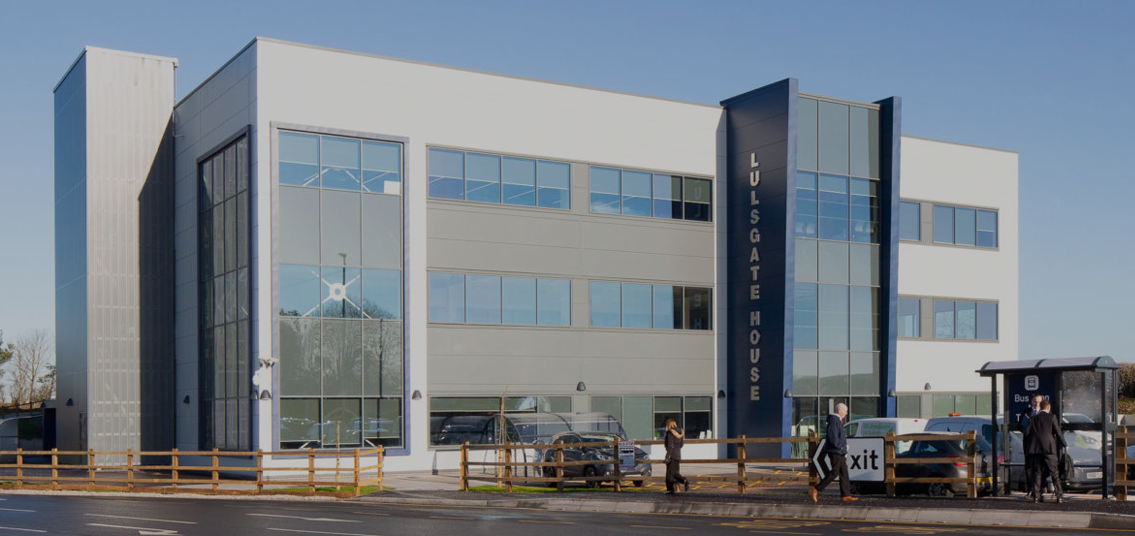
-
CLIENT
Bristol Airport
-
SECTOR
Aviation
-
TECHNOLOGY
Solar PV Panels
-
ROOF TYPE
Flat Roof
-
SYSTEM SIZE
36.04kWp
-
NO. OF PV MODULES
106
-
ANNUAL OUTPUT
36,880kWh
-
ANNUAL CO2 SAVINGS
22,128kg
CLIENT
Bristol Airport has set a target of being carbon neutral by 2025, putting Bristol and the South West at the forefront of carbon reduction in the UK airport sector. The Airport’s ultimate objective is to become net zero by 2050, in line with the commitment made by the European airport industry, to which Bristol was amongst the first signatories.
In a significant step towards reducing its carbon footprint, Bristol Airport has switched to a 100 per cent renewable electricity supply and is exploring a number of renewable energy options to generate their own clean energy on-site.
After winning an initial tender, Solarsense worked closely with the Airport to provide an optimised flat roof solar PV array for Lulsgate House. The clean energy system is capable of generating 36,880kWh of clean energy per year and mitigating a further 22,128kg of CO2 (per annum). A specialist team from Solarsense completed the installation within in a matter of days, with the dual challenge of working and moving materials whilst complying with strict airport rules and regulations.
TASK
As the 106 PV modules were to be installed on a flat roof, the design engineers opted to use a Van der Valk ValkPro+, ballasted mounting system in order to preserve the integrity of the roofing material. This type of mounting system obviates the need to penetrate the roof – removing the risk of water penetration entirely.
A SolarEdge system was specified in order to meet a tender requirement for a fire safety gateway. This ensures that the PV system is automatically shut down to a safe voltage when the fire alarm is triggered or manually turned off via the emergency stop button, allowing firefighters to work safely in the event of a fire.
Each 340W JA Solar module was fitted with individual SolarEdge optimisers that would enhance the performance of each individual panel and minimise the impact of some minor shading issues. SolarEdge technology also meant that each panel could be monitored individually; providing full visibility of the system’s technical and financial performance. The system is connected to a TV display in the foyer to show its current performance stats.
Services provided
- Detailed technical design (Solar PV & SolarEdge Optimisers)
- Full supply, installation & commissioning
- Full system handover including MCS registration and G99 grid connection

